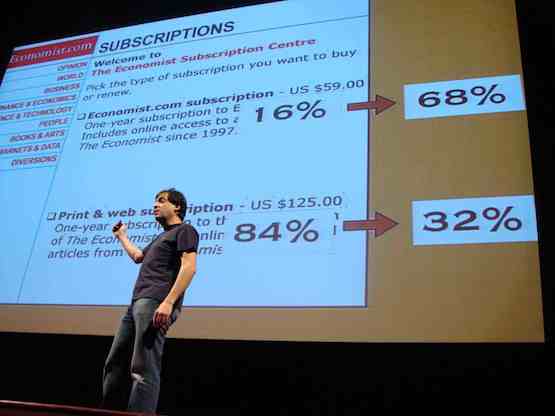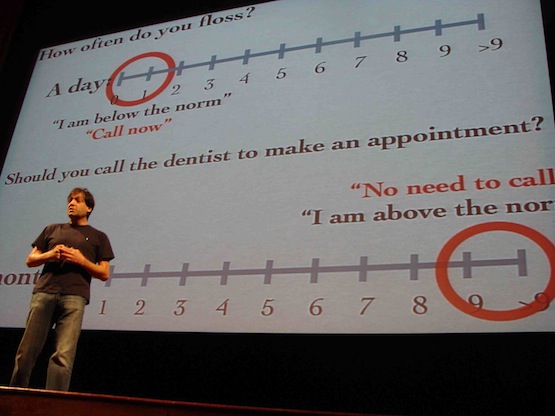When asked about the value of neuromarketing, Dan Ariely does see a bright future ahead. “But it’s too soon now”, the world-famous behavioral economist and author claims. “The human brain is way too complicated to be effectively measured by today’s fMRI or other technology”. Ariely spoke at a conference held in Amsterdam in November. The event comprised an inspiring series of talks on the irrationality of human decision making in our daily life and business.
Never trust focus groups
Victor Lamme of Amsterdam University disagrees with Ariely. “Neuromarketing has become very valuable. I would have made a similar comment to Ariely’s 3 to 5 years ago.”, he says in an interview after his talk. “Virtual Reality will further enable us to simulate real life situations and obtain even better insights into our decision making”. Professor Lamme claims the predictive value of fMRI tests is significant, even in relatively small sample sizes. Here Ariely and Lamme are in synch. Ariely: “Never trust focus groups: they might produce fantastic stories, yet not the truth.” Lamme: “when you really want to dig into someone’s thoughts or feelings, don’t ask him. Ask his brain.”
The illusion of our free will
The free will does not exist. As neuroscientists Margriet Sitskoorn and Victor Lamme emphasized, most decision making stems from deep-rooted patterns in our brain based on our personal experiences, the evolutionary make-up of our grey matter and the environment we live in. The offline and online context in which we oprerate plays a pivotal role on if, how soon and how we make our choices. The famous Economist example (see below) illustrates this clearly.
Why don’t we know our own preferences?
Ariely: “we don’t know our preferences that well”. As we are confronted with both information overload and an ever-increasing amount temptations, our mind helps us to make these choices for us. Dan Ariely stressed the human propensity to decide here and now. “We like to think of ourselves as rational beings, with a long term orientation”. In reality, most of us prefer to have one marshmellow now rather than two in half an hour from now. Self-restraint is a key trait to successful people and should be motivated, says Ariely. Whereas the absence of a free will suggests almost a static situation, Sitskoorn’s perspective of neuroplasticity is different: “your brain determines your behavior and being, yet your being also determines your brain”.
The pain of paying
Our behavior when it comes to pricing quite often is irrational too. Ariely: “We often lack the ability to think of the opportunity costs of a purchase. When asked what we give up when buying a Toyota, most people say a Honda. They should have said vacation, new furniture etcetera.” Varying the pain of paying provides opportunities to (de)incentivise a purchase. This can be used eg to not only drive purchases in B2B yet also to make people more eco-aware in their consumption of energy.
Dan Ariely’s own dream
During a brief interview I had with dr Dan Ariely on neuromarketing on behalf of the NMSBA / Neuromarketing Science & Business Association, Ariely indicated he dreams to achieve 3 things by means of his books, lectures and blogposts. He would like to see people to make better decisions as individuals, companies or governments. Thereby making fewer mistakes. And last yet not least he would love people to better enjoy social science.
DutchmarQ is to organize a B2B neuromarketing survey in Q1 2013 on the assumptions and actual best practices in the usage of online video in business to business. Questions, applications for sponsorship or participation are very welcome.



Leave a Reply
Want to join the discussion?Feel free to contribute!